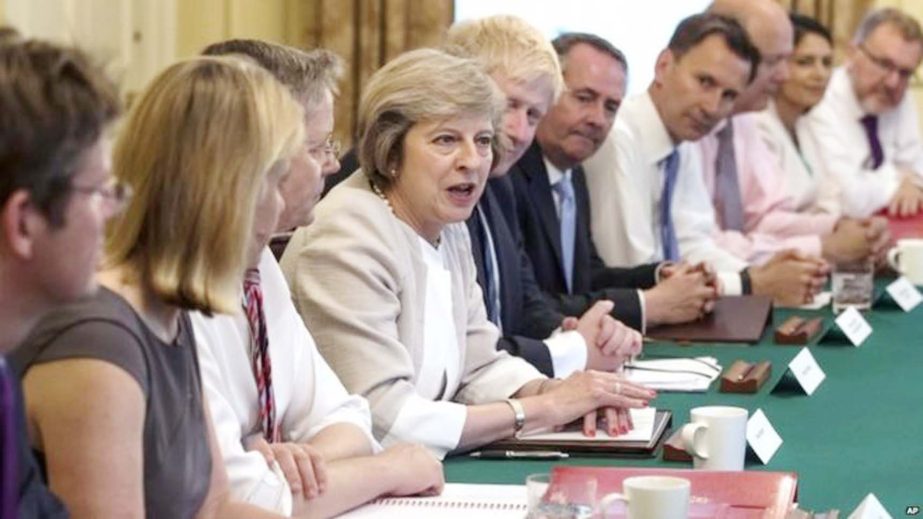
Reuters, London :
Prime Minister Theresa May will try to reassure allies over Britain’s vote to leave the European Union when she meets German Chancellor Angela Merkel on Wednesday and then heads to France in her first foreign trips as leader.
May, appointed a week ago after David Cameron resigned over the result of the EU vote, will make clear she will not be rushed into triggering Britain’s divorce because she needs time to put together a negotiating stance.
But by heading to Germany and France, soon after visiting Scotland and Wales to underline her desire to keep Britain united, May will sound out two of the EU’s most powerful leaders, Merkel and French President Francois Hollande, as she prepares to launch the complex negotiation for Britain’s exit.
May can expect tough talks with Merkel and Hollande, who have shown no sign that they will make things easy for post-Brexit Britain.
May said she was heading to Germany and France so soon after taking office because she was determined Britain would “make a success of leaving the European Union”.
“These visits will be an opportunity to forge a strong working relationship that we can build upon and which I hope to develop with more leaders across the European Union in the weeks and months ahead,” she said in a statement.
“I do not underestimate the challenge of negotiating our exit from the European Union and I firmly believe that being able to talk frankly and openly about the issues we face will be an important part of a successful negotiation.”
May’s spokeswoman characterized the visits as “a first conversation” and said the prime minister would not get into detailed discussions on Brexit.
The British leader also spoke to European Council President Donald Tusk on Tuesday, telling him Britain needed to carefully prepare for Brexit negotiations before it invokes Article 50 of the EU’s Lisbon Treaty to trigger the formal exit procedure.
Prime Minister Theresa May will try to reassure allies over Britain’s vote to leave the European Union when she meets German Chancellor Angela Merkel on Wednesday and then heads to France in her first foreign trips as leader.
May, appointed a week ago after David Cameron resigned over the result of the EU vote, will make clear she will not be rushed into triggering Britain’s divorce because she needs time to put together a negotiating stance.
But by heading to Germany and France, soon after visiting Scotland and Wales to underline her desire to keep Britain united, May will sound out two of the EU’s most powerful leaders, Merkel and French President Francois Hollande, as she prepares to launch the complex negotiation for Britain’s exit.
May can expect tough talks with Merkel and Hollande, who have shown no sign that they will make things easy for post-Brexit Britain.
May said she was heading to Germany and France so soon after taking office because she was determined Britain would “make a success of leaving the European Union”.
“These visits will be an opportunity to forge a strong working relationship that we can build upon and which I hope to develop with more leaders across the European Union in the weeks and months ahead,” she said in a statement.
“I do not underestimate the challenge of negotiating our exit from the European Union and I firmly believe that being able to talk frankly and openly about the issues we face will be an important part of a successful negotiation.”
May’s spokeswoman characterized the visits as “a first conversation” and said the prime minister would not get into detailed discussions on Brexit.
The British leader also spoke to European Council President Donald Tusk on Tuesday, telling him Britain needed to carefully prepare for Brexit negotiations before it invokes Article 50 of the EU’s Lisbon Treaty to trigger the formal exit procedure.

